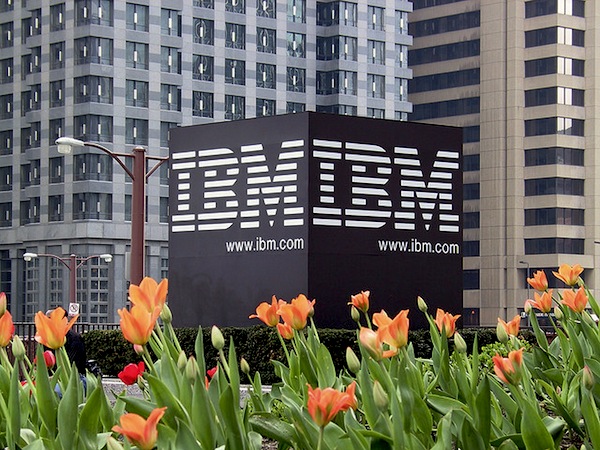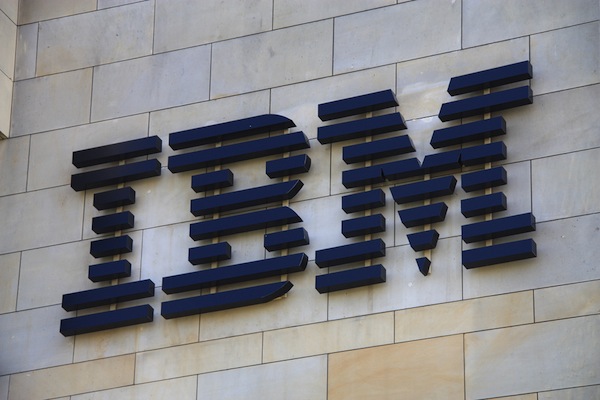
Fukushima Daiichi requires a Manhattan Project approach to avoid another nuclear accident
This is my sixth column about the Fukushima Daiichi nuclear accident that started last year in Japan following the tsunami. But unlike those previous columns (1,2,3,4,5), this one looks forward to the next Japanese nuclear accident, which will probably take place at the same location.
That accident, involving nuclear fuel rods, is virtually inevitable, most likely preventable, and the fact that it won’t be prevented comes down solely to Japanese government and Tokyo Electric Power Company (TEPCO) incompetence and stupidity. Japanese citizens will probably die unnecessarily because the way things are done at the top in Japan is completely screwed up.

Google+ will continue to grow whether people actually use it or not
With Facebook now public and sitting on a huge pile of cash, let’s turn the conversation to the social network’s most pressing competitor, Google. Google and Google+ don’t appear to present much of a threat to Facebook, but the game board was reset on Friday and tactics at both companies will change accordingly. Now Facebook has to find a way to grow revenue and users and will increasingly bump up against Google’s huge advantages in search and apps. For Facebook to achieve its goals, the company will have to enter both spaces with gusto.
Google has learned how to leverage its strengths and suddenly one of those strengths is Facebook’s success. Now that Facebook is a $100 billion company, it doesn’t hurt Google to be number two in that space. Who else is? Pinterest? Instagram? Twitter? None of those services offer a full-fledged social network for those who do want a Facebook alternative, and some people will.

Mark Zuckerberg isn't embarrassed by Facebook's IPO
So Facebook is now a public company but with the shares only one business day old the news is already bad: Facebook shares didn’t pull a Google or a Yahoo or a Microsoft or even a TheGlobe.com and soar out of sight on IPO day. They ended right where they started pretty much after the day traders took their easy profits. And while Wall Street sees this performance as a dud, Facebook itself sees it as a masterful piece of financial engineering.
If you are an investment banker -- and let me re-emphasize that, if you are an investment banker -- you want IPO shares to go up on their first day, rising in price by at least 10 percent though no more than 20 percent. This shows the IPO is hot, the company is booming, yet the offering wasn’t so underpriced that the founders feel cheated. Such IPOs make investors feel happy and happy investors buy and sell more shares and participate in future IPOs.

Today's IBM, rotten to the core
Six in a series. So after five parts, one question remains: What will IBM look like by the end of 2015? It will look like Oracle.
With earnings per share meaning everything and a headcount mandate that can’t be achieved without totally transforming the company, IBM is turning itself into something very different. Gerstner’s service business that saved the company 20 years ago will be jettisoned, probably to a combination of US and international buyers.

IBM is at a tipping point
Fifth in a series. When I was growing up in Ohio, ours was the only house in the neighborhood with a laboratory. In it the previous owner, Leonard Skeggs, had invented the automated blood analyzer, pretty much creating the present biomedical industry. Unwilling to let such a facility go to waste, I threw myself into research. It was 1961 and I was eight years old.
I was always drawn to user interface design and quickly settled, as Gene Roddenberry did in Star Trek half a decade later, on the idea of controlling computers with voice. Using all the cool crap my father (a natural scrounger) dragged home from who knows where, I decided to base my voice control work on the amplitude modulation optical sound track technology from 16mm film (we had a projector). If I could paint optical tracks to represent commands then all I’d need was some way of analyzing and characterizing those tracks to tell the computer what to do. But the one thing I didn’t have down in the lab in 1961 was a computer.

How do we just fix IBM?
Fourth in a series. Well it can’t be done from the inside, so it has to be done from the outside. And the only outside power scary enough to get through the self-satisfied skulls of IBM top management is IBM customers. A huge threat to revenue is the only way to move IBM in the proper direction. But a big enough threat will not only get a swift and positive reaction from Big Blue, it will make things ultimately much better for customers, too.
So here is exactly what to do, down to the letter. Print this out, if necessary, give it to your CEO or CIO and have them hand it personally to your IBM account rep. Give the IBM rep one business day to complete the work. They will fail. Then go ballistic, open up a can of whoop-ass, and point out that these requirements are all covered by your Service Level Agreement. Cancel the contract if you feel inclined.

It’s a race to the bottom, and IBM is winning
Third in a series. The current irrationality at IBM described in my two previous columns, here and here, is not new. Big Blue has been in crazy raptures before. One was the development of the System 360 in the 1960s when T.J. Watson Jr. bet the company and won big, though it took two tries and almost killed the outfit along the way. So there’s a legacy of heroic miracles at IBM, though it has been a long while since one really paid off.
There are those who would strongly disagree with this last statement. They’d say that with its strong financial performance IBM is right now in one of its greater moments. But haven’t we just spent 2000 words showing that’s not true? Successful companies aren’t heartsick and IBM today is exactly that, so the company is not a success.

Why is IBM sneaking around?
Second in a series. IBM’s 2015 plan was hatched to deliver $20 earnings-per-share to the delight of Wall Street. IBMers were offered a carrot, a few shares of stock granted at the end of 2015, as a reward for helping them achieve that target. It appears that IBM’s goal is not to issue any of those grants as they continue to conduct resource actions (IBMspeak for permanent layoffs) and remove talented and valuable US employees in favor of moving work to low cost countries such as Brazil, Argentina, India, China and Russia.
Work that stays onshore is mainly sent to what are called Global Delivery Facilities (GDF’s), two of which were created at heritage IBM locations (Poughkeepsie, NY and Boulder, CO) while starting new ones in Dubuque, IA and most recently Columbia, MO. IBM’s public position is they are creating jobs in smaller towns when in fact they are displacing workers from other parts of the United States by moving jobs to these GDFs or to offshore locations.

The Downfall of IBM
First in a series. This is my promised column about IBM -- the first of several on the topic, all to be delivered in a series. The last time I wrote at length about Big Blue was in 2007. I have been asked many times to revisit the subject, something I haven’t wanted to do because it is such a downer. Writing the last time I hoped the situation, once revealed, would improve. But it hasn’t. And so, five years later, I turn to IBM again. The direct impetus for this column is IBM’s internal plan to grow earnings-per-share (EPS) to $20 by 2015. The primary method for accomplishing this feat, according to the plan, will be by reducing US employee head count by 78 percent in that time frame.
Reducing employees by more than three quarters in three years is a bold and difficult task. What will it leave behind? Who, under this plan, will still be a US IBM employee in 2015? Top management will remain, the sales organization will endure, as will employees working on US government contracts that require workers to be US citizens. Everyone else will be gone. Everyone.

